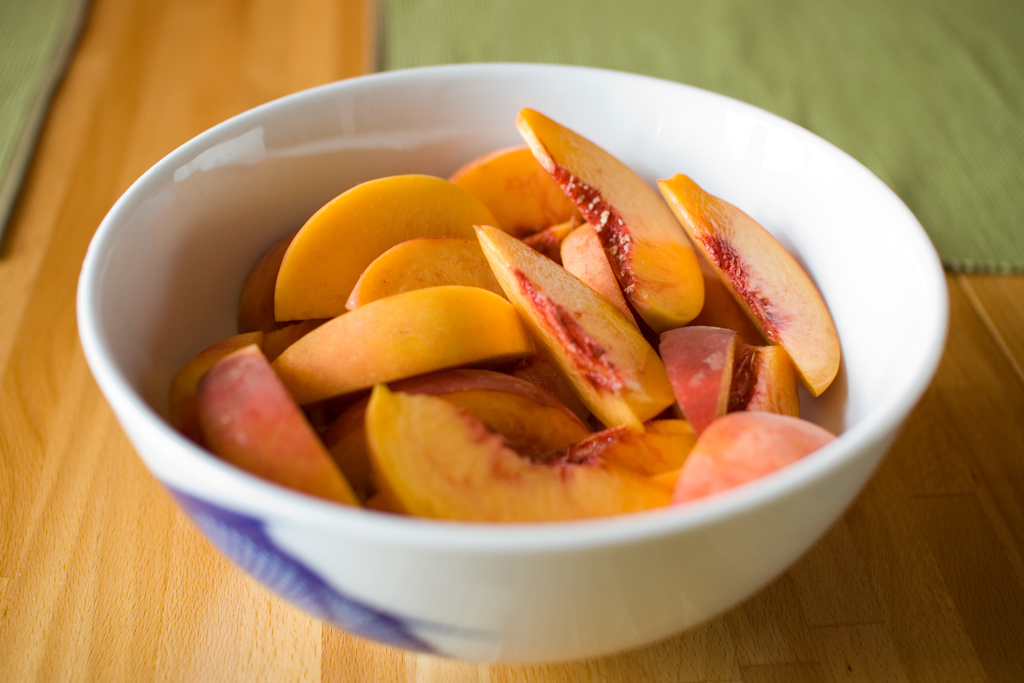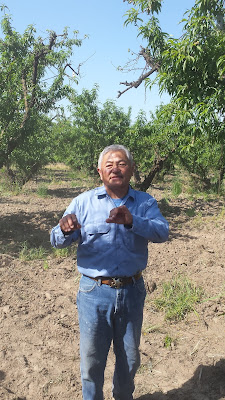
The drought has been a talking point for many Californians, but I have often wondered how farmers — whose livelihoods are affected by the drought and who are at the center of the water-use debate —view the drought.
I got an opportunity to hear from a farmer during my visit to the Masumoto Family Farm near Fresno in late April this year. The visit was organized by the University of California – Office of the President (UCOP) for the 2015 Global Food Initiative (GFI) student fellows. The Masumoto family of David “Mas” Masumoto, his wife Marcy, and children, Nikiko and Korio, spent time with the GFI fellows talking about the students’ interests in food and agriculture related issues. They invited us into their home for a day to experience life on a farm. In their 80 acre farm, the Masumotos grow organic peaches, nectarines, and grapes for raisins.
As Mas walked with the GFI fellows, giving us a tour of his heirloom peach trees, we asked about his thoughts on the drought. Mas’s reply to the question was completely unexpected and pleasantly surprised us all.
Mas said that people tend to be extremely scared of the drought, and, while it is definitely frightening, he has now started to view the drought as “a mystery waiting to be uncovered, and as an opportunity for public service.” He went on to explain that the drought gives us all an opportunity to research and innovate on new methods for conservation and sustainable use of water – which would eventually lead to a “public service.”
He was quick to point out that the biggest challenge is that farmers get only “one shot a year” to experiment with a different water strategy or management practice. This year, the Masumotos have experimented with using about half of the normal water-use for a small sample of their peach trees. Mas says that a lot of times more water is used just for maintaining the cosmetic nature of the fruits i.e. to make the peaches bigger than they would usually grow.
A recent LA Times article reports that these experimental peaches turned out to be small, but packed with an intense flavorful punch. These seem to fit perfectly with the farm’s line of organic, ugly, and fabulous or “O, U Fab!” peaches.
Another fellow asked Mas how students can support farmers and connect with them for collaborative solutions to the water issue in California. To this Mas replied that farmers are usually very independent and hence are used to “self-learning.” Therefore, scaling down research to farm-level and re-framing issues and solutions as personal stories could help with connecting better to individual farmers.
I returned from the trip optimistic and thoroughly inspired to carry on working towards uncovering the mystery of how to deal with the current drought!

Top image: Sun crest peaches from Mas Masumoto’s farm [Source: Trevor H]

